Aunt Nel's Legacy: The Woman Who Risked Everything to Save a Little Girl
Rebekah Lewinson shares her harrowing story of survival and the courage of Aunt Nel, who put her own life at risk during the Holocaust to save Rebekah. Decades later, Rebekah reflects on the impact of Aunt Nel's actions not just on her life, but on the lives of her descendants.
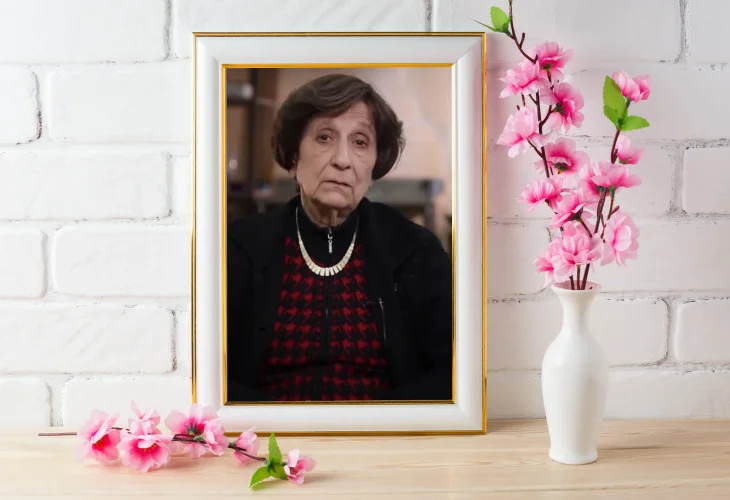 Rebekah Levinson
Rebekah LevinsonRebekah was only six months old when World War II began. Living in Amsterdam, Netherlands, with her family - the Pelisauer family, which included her parents and her older brothers Joseph and Shlomo, and later her younger sister Elisheva born during the war—a time marked by her family's strong Zionist beliefs, giving them Hebrew names, which was quite pioneering back then.
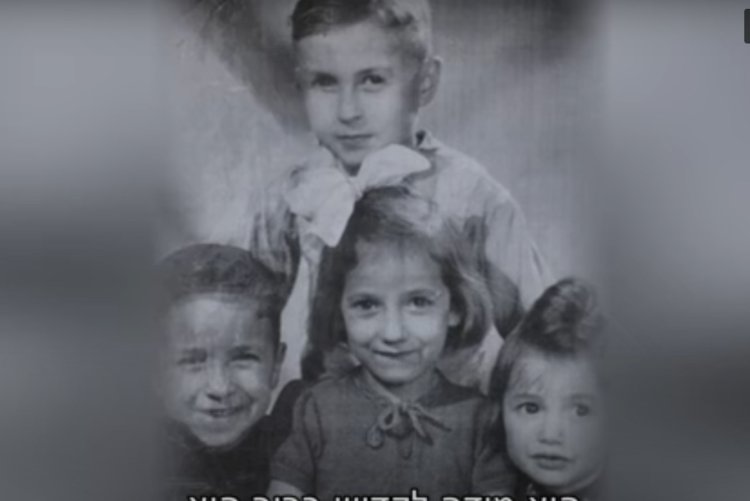 Rebekah with her brother after liberation
Rebekah with her brother after liberationWithout many memories of the early war years, Rebekah, a small child, does not remember the dramatic date of May 10, 1940, when the Germans invaded Holland. "That day, my father tried to smuggle us to England with our two grandmothers, as our grandfathers had already passed away," she says. "We stood on one side of the road with many others trying to escape, while on the other side, German military cars and tanks aimed to stop this mass escape. With no choice, we returned home."
"We Didn't Even Say Goodbye"
From that day, life tried to return to a semblance of normalcy. Rebekah's father continued working at the factory he managed, overseeing many workers. Her older brother attended school, but everyone knew that life did not truly return to its routine.
During those times, the Germans issued numerous anti-Jewish decrees, including the confiscation of Jewish property, banning Jews from schools and universities, and prohibiting the use of public transportation and markets. In February 1941, the authorities conducted a raid on the Jewish population, gathering approximately 400 men in a central square. They endured severe abuse before being executed. By May 1942, Jews were mandated to wear yellow stars.
The situation for Jews in Holland deteriorated day by day until one fateful day. Rebekah recalls it was the eve of Rosh Hashanah 1943 when the Germans came knocking to take them away. "It was seven in the morning, and we were still in the bedrooms, but my mother was prepared," she recounts. "She had prepared a large bowl of 'Lysol'—a strong disinfectant with a very potent smell, and when the Germans entered, she told them: 'You should disinfect your hands first, as our baby has scarlet fever—a very contagious disease.' The Germans, known for their fear of contagious diseases, fled when she handed them the bowl."
"But for my parents, this was the breaking point. Being in contact with a Dutch Jewish underground that rescued and relocated Jewish children to non-Jewish families, they gave a signal. Soon after, a young woman working at my father's factory came and took me away without any preparation. Within an hour, my parents handed over their four children to the underground messengers, not knowing what would become of us or them."
"Before we left the house, my parents decided to give us an identifying mark. A doctor injected each of us with a syringe filled with blue ink, creating a small tattoo-like dot under our skin, which became our family identifier. Thanks to this, by the way, my younger sister was found after the war."
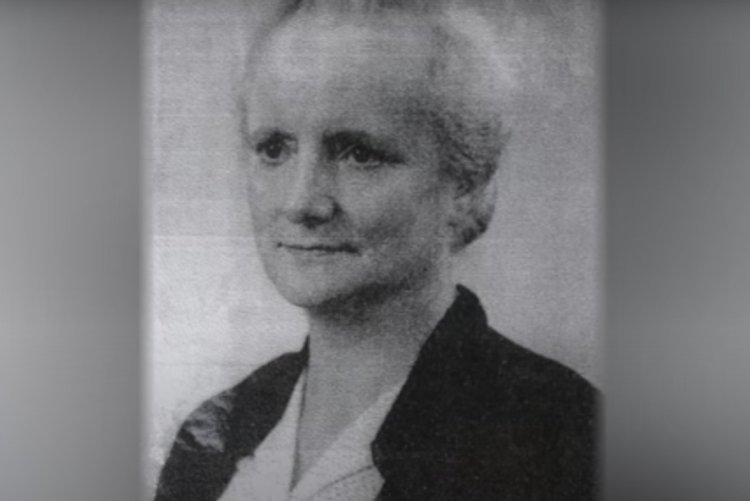 Aunt Nel
Aunt NelOn the day Rebekah was taken from her home, she was brought to the train station and traveled to the town of Houghveen in northern Holland, where she was handed over to the head of the underground. "That same day, I reached the home of 'Aunt Nel,'" she narrates. "Aunt Nel, a true Righteous Among the Nations, hid me for two years and saved me by the grace of Hashem from the Germans. She was a 40-year-old single woman living in her inherited apartment, running a grocery store. She belonged to a Christian denomination called 'Reformed' and was a very kind, honest, and upright believer."
But what did she tell those around her? How did she explain having a "daughter"?
"She couldn't present me as her daughter because being unmarried made it clear I wasn't hers. However, the underground gave me a fake certificate of a girl killed in Rotterdam. It stated that I had no parents left and needed a family to care for me. This way, Aunt Nel wasn't required to hide me, allowing me to roam the village. It didn't take a genius to suspect I was Jewish. Aunt Nel's neighbors, who collaborated with the Germans, didn't denounce me miraculously."
Rebekah's name was also changed from Rebekah Pelisauer to Riki Paser. "Initially, it was hard to adjust to my new name, but I soon forgot the old one. Every Sunday, I accompanied Aunt Nel to church. The priest there, also involved in the underground with all his sons, knew I was Jewish. Every night before bed, Aunt Nel taught me a short prayer: 'I am going to sleep and closing my eyes, Hashem please protect me all night.'"
"To Bring Joy to Hashem"
Do you remember the day the war ended?
"Certainly, it was two years after I arrived at Aunt Nel's home. On one day—May 5, 1945—Canadian army tanks entered our village, announcing the war's end instantly. I can't forget the ecstatic cheers of people bursting out from their homes and hiding places, pouring onto the streets, shouting, dancing, and celebrating wildly. Some even placed me on one of the tanks and photographed me."
"Shortly after, my parents knocked on Aunt Nel's door. They had been hiding in Amsterdam during the war and after it ended, pedaled on bicycles for many kilometers to visit their children at the addresses given by the underground."
"The aunt opened the door, with me hiding behind her skirt. I don't remember the meeting, but I clearly didn't recognize my parents nor wanted to go with them. Aunt Nel was the center of my life, and I wanted to stay with her. They arranged with Aunt Nel and the other families hiding my siblings that we would stay another six months, as at that time they had no home. Before we parted, Aunt Nel cut a lock of my hair, keeping it in the back cover of her watch. Upon her passing, I received the watch as per her request."
Rebekah holds a bundle of letters, her parents' correspondence with Aunt Nel during the six months they awaited her. "In the first letter, they asked, 'What do we owe you? Tell us what you want, and we'll give it.' Aunt Nel replied she wanted nothing, grateful and thanking Hashem for answering her prayers, as she always wished I would be reunited with my family."
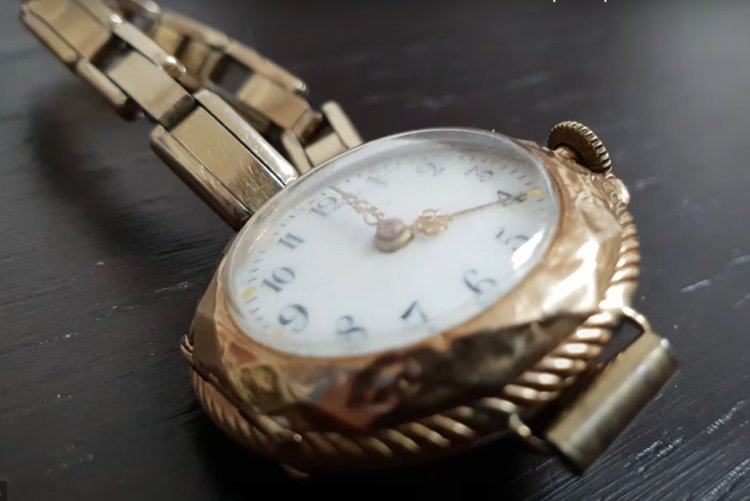 The watch Rebekah received from Aunt Nel
The watch Rebekah received from Aunt Nel"In another letter, after my parents found a home and wanted me to return, Aunt Nel wrote to them about tucking me into bed and I said, 'You shouldn't be sad, Aunt Nel, but I am, because I don't want to leave you.' And truly, I didn't want to leave Aunt Nel. But with Hashem's help, I eventually transitioned smoothly, adapting to my parents' home. Everything was new for me—prayers, grace after meals, Shir Hama'alot, but I adjusted, being too young to fully grasp the drastic life changes. I resumed my Jewish identity, forgetting the past. Meanwhile, Aunt Nel sent me weekly postcards with pretty pictures and words. I saved all of them, and to this day possess boxes full, captivating my children, grandchildren, and great-grandchildren."
"My parents maintained close ties with all our rescuers for many years post-Holocaust—until their passing, continuing with their descendants. I named my first daughter after Aunt Nel, immensely pleasing her. Personally, as time passes, I comprehend the magnitude of our rescuers' actions, knowingly endangering their lives for two years, confronting unimaginable fear. They knew if caught, they would have been killed alongside us. It’s impossible to grasp what they endured for us. I remember asking Aunt Nel, years after the war, 'But why did you do it?' She replied, 'I know Hashem loves the Jewish People, and I wanted to bring joy to Hashem.' That was her answer."
Only Faith
At nineteen, Rebekah immigrated to Israel, soon followed by her family. "I studied at a teachers' seminary in Jerusalem, and over the years worked in education," she shares. "I married Yehuda Lewinson, also from Holland, who hid with non-Jews during the war. We have eight children, all married, blessed with a large family of many grandchildren and great-grandchildren. No wedding or event passes without recalling Aunt Nel—who has since passed away—but I'll eternally remember her kindness, saving me and the generations thereafter."
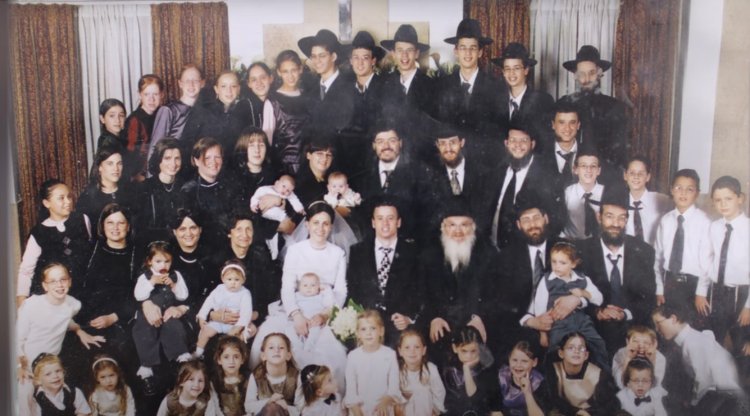 Rebekah with her family and descendants
Rebekah with her family and descendantsIn recent years, Rebekah lectures, sharing her life story at various opportunities. She emphasizes one message: "I often speak to audiences of students or non-religious people, repeatedly facing the question, 'Where was Hashem during the Holocaust?' I respond with my heartfelt sentiments: 'The Torah includes several times when curses and blessings overtook the Jewish People, and chillingly, the Holocaust mirrored those curses exactly."
"Seeing this, it’s hard not to believe that the blessings will also come true exactly as described in the Torah. Thus, far from weakening, my faith fortified. As we are faithful believers, knowing redemption will arrive soon, I am certain we will soon witness all the blessings in our lifetime."
Special thanks to Nava Weiss, head of the Haredi department at Yad Vashem, for her assistance in preparing this article. The photos are from a film produced by the International School for Holocaust Studies at Yad Vashem.

